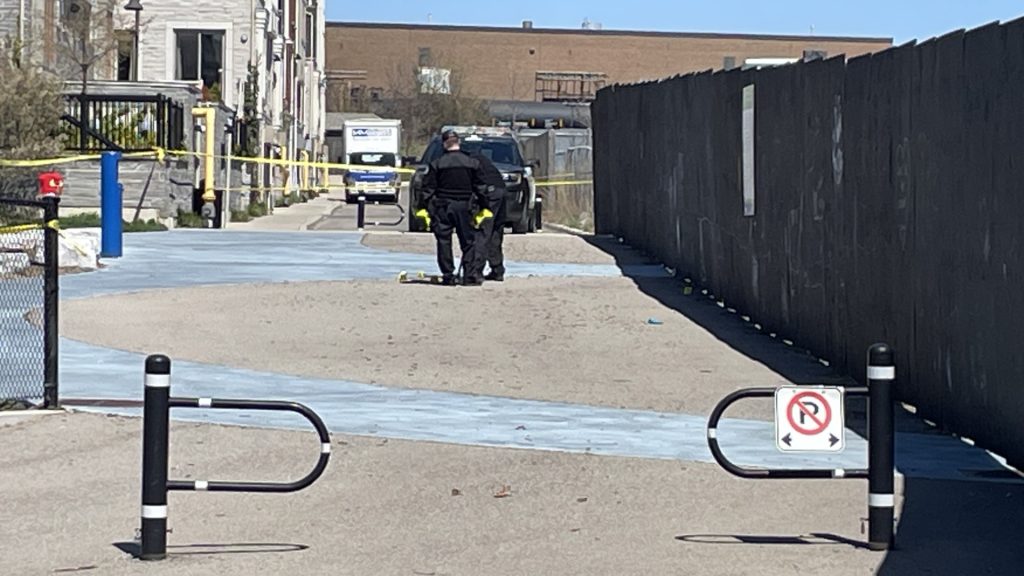City Declares Extreme Heat Alert
Posted July 2, 2006 12:00 pm.
This article is more than 5 years old.
The city has opened four cooling centres to ensure those without an air conditioned environment to retire to have some relief from the heat.
The temperature was expected to hit the 32 C mark and the heat wasn’t the only concern Sunday – the UV index was also 9, or very high.
The elderly, infants and people with existing health conditions are at the greatest risk when the temperatures soar and officials are encouraging you to check in on your elderly neighbours and friends to make sure they’re able to handle heat.
Health officials are advising you stay out of the sun for prolonged periods of time, avoid strenuous outdoor activity, and to keep well hydrated by drinking plenty of fruit juices and water.
It’s also important to remember your pets when the conditions heat up and the Toronto Humane Society says you should never leave your furry friend unattended in a car, even for a moment. The temperature inside a vehicle can rise to fatal levels for your pooch within a few minutes.
If you need assistance during the heat alert, you can call the Red Cross heat information line at (416) 480-2615 until 9pm.
Here’s a list of the city’s cooling centres:
- Metro Hall, 55 John Street (John and King)
- East York Civic Centre, 850 Coxwell Avenue (Coxwell and Mortimer)
- Etobicoke Civic Centre, 399 The West Mall (Burnhamthorpe and Hwy 427)
- North York Civic Centre, 5100 Yonge Street (Yonge and Sheppard)
The three civic centres will be open between 11am and 7pm and Metro Hall will be open 24 hours.
Here’s what the city of Toronto advises.
- Drink lots of water and natural juices even if you don’t feel very thirsty. Avoid alcoholic beverages, coffee and cola.
- Avoid going out in the blazing sun or heat when possible. If you must go outside, stay in the shade as much as possible and plan to go out early in the morning or evening when it is cooler and smog levels may not be as high as in the afternoon. Wear a hat.
- Take advantage of air conditioned or cool places such as shopping malls, libraries, community centres or a friend’s place.
- If you don’t have air conditioning, keep shades or drapes drawn and blinds closed on the sunny side of your home, but keep windows slightly open.
- Keep electric lights off or turned down low.
- Take a cool bath or shower periodically or cool down with cool, wet towels.
- Wear loose fitting, light clothing.
- Avoid heavy meals and using your oven.
- Avoid intense or moderately intense physical activity.
- Never leave a child or a pet in a parked car or sleeping outside in direct sunlight.
- Fans alone may not provide enough cooling when the temperature is high.
- Consult your doctor or pharmacist regarding side effects of your medications.
Caring For Your Pets
Even on a mild day, the temperature inside a car can rise to fatal levels in just minutes, the Toronto Humane Society says, and dogs and cats are at an increased risk for heatstroke, dehydration, seizures and even death.
Take the following precautions:
- Leave your pet at home! Even if you think you’re going in to the store for a second, you may get held up unexpectedly and then your pet is left to literally roast in the car.
- Never transport pets in the back of a pick-up truck.
- Your pet is at risk of serious injury in case of accident or a fall from the vehicle. In summer, the metal truck bed can easily burn your pet’s paws.
- Know the signs of heat exhaustion: restlessness, excessive thirst, heavy panting, lethargy, dark tongue, rapid pulse, vomiting, dizziness, lack of coordination and glazed eyes. If you recognize any of these symptoms- immediately get him to a cool place, give him fresh water and call your veterinarian.
- If you see a dog in distress:
-Write down the car’s make, model and plate number. Have the owner paged in nearby stores and parking lots. Immediately call The Toronto Humane Society (416) 392-2273, Toronto Animal Services (416) 338-PAWS or Toronto Police Services 911 or (416) 808-2222 or Crime Stoppers (416) 222-TIPS.
-If the animal’s life appears to be in immediate danger – confirm witnesses who agree with you and do what you must to get to the suffering animal. Then, give the animal water and shade, and wait for the authorities to arrive.
Courtesy of the Toronto Humane Society










